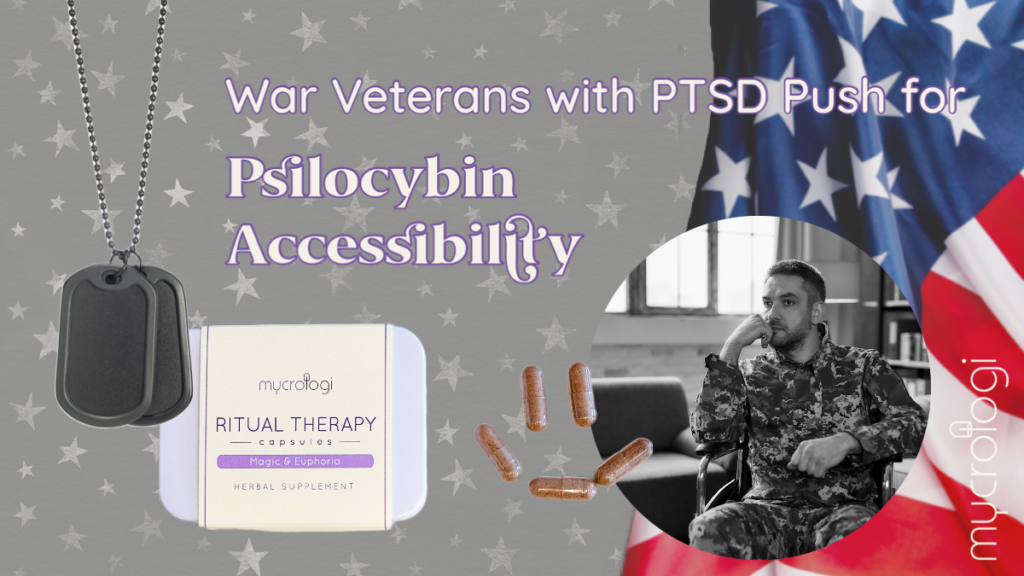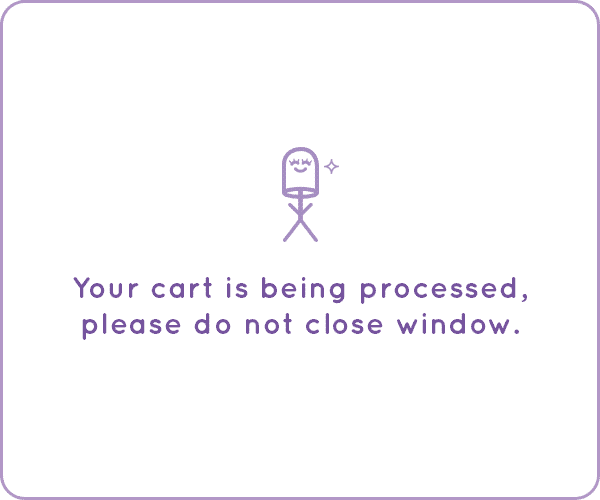Night terrors, intrusive thoughts, emotional distress – these symptoms only scratch the surface when it comes to the vast symptoms of PTSD, an all too common disorder that many selfless veterans are forced to face on an everyday basis.
Treatment for Post Traumatic Stress Disorder is about as sparse as it is limited, with low efficiency rates leaving individuals feeling helpless in the search for solace.
With studies attesting to the fact that low accessibility to mental health services for veterans is raising suicide rates in the United States, the heightened health risks imposed on veterans including mental health disorders, homelessness, and substance abuse has become a topic of crucial discussion.
As a result of this wide-spread issue, a number of veterans have now added themselves to the ever growing list of scientists, healthcare professionals, and other important activists calling for revision of the current legalities regarding magic mushrooms — which currently remain in the category of Schedule 1 drugs in the United States.
Psilocybin-assisted Therapy and the DMN
Though scarce, small clinical studies have yielded promising outcomes in the application of psilocybin-assisted therapy for the treatment of PTSD.
In a 2020 study published in the International Journal of Neuropsychopharmacology, researchers found that a single dose of psilocybin combined with therapy significantly improved symptoms of PTSD, including depression and anxiety.
It can be speculated that the psilocybin’s efficiency in the treatment of PTSD may be attributed to its effect on the brain’s Default Mode Network, a network of brain regions that activate when the brain is at rest.
Termed as the DMN (Default Mode Network), this passive, task-free mental state comprises various brain regions, including the prefrontal and cingulate cortex, both of which play significant roles in various cognitive, emotional, and physical responses. Recent research has also indicated that the Hippocampus, responsible for memory consolidation, the Amygdala, involved in emotions, and the Thalamus, our sensory relay center, are mutually connected to the DMN.
The DMN and its attachment to these crucial brain regions may be closely associated with the persistence and development of PTSD symptoms, whereas a slow-down in DMN activity may potentially reduce the severity of symptoms involved not only with PTSD, but depression, anxiety, and OCD as well.
Psilocybin has been shown to decrease DMN activity, playing a key role in its therapeutic potential. By reducing DMN activity, psilocybin may help mitigate maladaptive behavior, allowing patients to break out of habitual rumination patterns that contribute to PTSD severity.
While psilocybin-assisted therapy for PTSD remains in its preliminary stages, gaining a deeper understanding of the relationship between DMN activity and this treatment approach may provide valuable insights into its potential effectiveness.
Hyperactive DMN activity caused by PTSD can look like:
- Rumination: Consistent dwelling or repetition of negative thoughts such as excessive guilt and worry.
- Intrusive thoughts: Unwanted or unprovoked thoughts that enter the mind without intention, often causing anxiety, restlessness, and depression.
- Focus on traumatic memories: The consistent revisiting of traumatic memories, otherwise known as flashbacks that cause emotional distress.
While more research is necessary to solidify these findings, fMRI studies found that psilocybin caused a decrease in multiple regions across the DMN, hinting at a potential breakthrough in PTSD treatment options.
Decreased DMN activity can be associated with the following:
- Decreased rumination: Reduced rumination patterns may offer individuals the ability to separate themselves from negative dwelling patterns.
- Present-moment awareness: Heightened present-moment awareness can allow the individual to become centered in the current moment, opposed to being consumed by thoughts of the future or past.
- Enhanced emotional processing: Increased engagement in emotional processing better allows individuals to confront and unpack emotional issues more openly.
Current Treatment Options
The two options that currently exist for the treatment of PTSD, as well as many other mental health disorders, include psychotherapy, and most commonly, antidepressant medication.
While these two treatment options have undoubtedly helped many patients, many are left to face defeat when these methods fall short.
Antidepressant medication, in particular, may be accompanied by a variety of downsides, which, in the context of PTSD, can pose a risk of more harm than good.
With studies suggesting that antidepressants are ineffective in those who have experienced multiple traumas, medical professionals and plant medicine activists are voicing the need for urgency when it comes to the accessibility of alternative treatment methods, such as psilocybin-assisted therapy.
Psilocybin is a non-chemically addictive substance, meaning that a person can consume psilocybin and experience no risk of dependency. In addition, psilocybin under professional guidance has shown no strong negative effects, unlike traditional pharmaceuticals and other recreational substances.
Hope for Veterans
In 2016, it was determined that half a million U.S. troops who had served in wars over the preceding 13 years were diagnosed with PTSD.
Depression is the most frequent comorbidity of PTSD in war veterans, defined by the simultaneous presence of two or more conditions in one patient. Other comorbidities among veterans with PTSD include addiction, and chronic anxiety.
Fortunately, the movement towards psychedelic-assisted treatment methods is advancing, creating room for hope in those who have not responded to traditional practices.
In June of 2023, the New York Times reported on these advancements, detailing how California lawmakers are undergoing changes of heart when it comes to the legalization of psychedelics, under the premise of therapeutic use.
The legislation, Senate bill 58, aims to legalize the personal possession and use of natural psychedelics in ages 21 and older. These substances include DMT, mescaline, and of course, psilocybin.
San Francisco Democrat Scott Wiener, the man behind the bill, places a precedence on veterans and first responders, claiming that those suffering from PTSD deserve legal access to plant medicine — and we could not agree more.
If approved by the governor, bill 58 will go into effect January 1st, 2025. But is it enough?
Many individuals, including legislators, are expressing their frustrations, suggesting that no law should prevent veterans from accessing non-harmful substances, particularly those with the potential to enhance the lives of thousands of families across the country.
What we’re discussing here is more than a recreational drug, we are talking about a nature-derived substance that is actively creating physiological changes in the brain, continuously proving itself to be a breakthrough tool in modern medicine.
This is why the push for psychedelics is not only relevant, but vital.
Sources:
https://www.ncbi.nlm.nih.gov/pmc/articles/PMC5563010/
https://journals.sagepub.com/doi/full/10.1177/02698811221092508
https://academic.oup.com/ijnp/article/23/6/385/5805249
https://www.ncbi.nlm.nih.gov/pmc/articles/PMC5960989/
https://www.ncbi.nlm.nih.gov/pmc/articles/PMC5047000/



